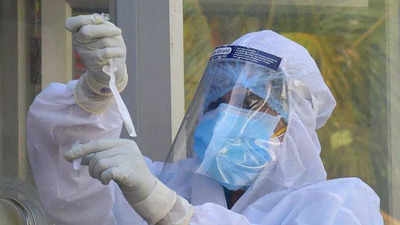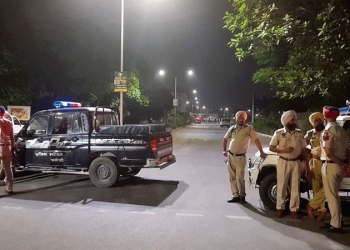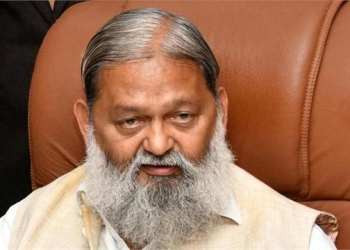The state election commission is concerned about the possibility of a significant increase in Omicron cases during the months of January and February when election activities would be in full gear in Punjab. As a result, the commission has developed a plan of action to address the potential threat. A high-level team from the Election Commission of India (ECI), led by chief election commissioner (CEC) Sushil Chandra and including election commissioners Rajiv Kumar and Anup Chandra Pandey, arrived in Chandigarh on Wednesday for a two-day visit to assess poll readiness in the state ahead of the Punjab assembly elections. In addition to Sheyphali B Sharan, the commission’s team included three deputy election commissioners, Chandra Bhushan Kumar, Nitesh Vyas, and T Sreekanth, as well as director-general Chandra Bhushan Kumar. Punjab has been one of the most impacted states, with the virus claiming the lives of 16,622 people and infecting a total of 6,03,780 others. The Omicron variety of Covid is spreading at an unprecedented rate, and it is predicted to overtake the spread of the Delta strain by the beginning of the next year. In the face of the potential that poll activities will accelerate the spread of cases, the state election commission and health authorities in Punjab have the dual challenge of ensuring that polls are conducted smoothly while also keeping the spread of disease under control.
Japanese investments in India’s tech, startup ecosystem cross $9.2 billion
The aggressive campaign and massive mobilization of people by political parties in many states — including Kerala, Tamil Nadu, West Bengal, and Assam — went to the polls earlier this year when the new variant had not yet been discovered resulted in a significant increase in cases of the disease. Karuna Raju, Punjab’s chief electoral officer (CEO), described Omicron as a source of concern but insisted that the province had learned from elections held in other states earlier this year and that the province was making adequate efforts to ensure that the scenario did not recur in Punjab. The commission has initiated a special training program for all district-level officials, in which they are being instructed on how to conduct elections during Covid periods, with a particular emphasis on guaranteeing Covid-appropriate behavior on the part of voters. According to Raju, around 25,000 booths throughout the state will be equipped with masks, sanitizers, gloves, and personal protective equipment (PPE). All voters will be inspected at the entrance, and the number of people allowed into a polling booth will not exceed a certain number of individuals. In order to enforce the rules, there will be separate access and exit gates, as well as specific teams stationed at the booth to enforce them. Thermal scanning and verification will also be carried out by medical teams on the ground.
























